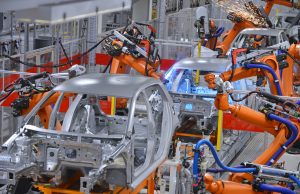

These Are the Most Demanded Technologies in China’s 14th Five-Year Plan
The 14th Five-Year Plan (14th FYP) is a blueprint for China’s development over the next five years and sets out critical economic and social reform areas. It is especially significant as it covers the first five year in a new journey to establish a thoroughly modern socialist nation and achieve its second centennial objectives, which begin in 2020 and ends in 2025.
These five years also represent a ‘vital period of strategic possibilities’ for China to explore and test new growth models during tumultuous changes both within and outside of the country.
If you’re a businessperson, entrepreneur, professional, or any-in between, having a knowledge of what’s happening and what will happen in the next five years in China is crucial as you actively operate your business remotely or even in-house.
Digital Currency
One of the main themes of the 14th FYP is to continue to open up and strengthen the the financial sector. One of the recommendations calls for the continuous development of market-oriented interest rate reforms and more efficient resource allocation in the financial system.
In the 14th FYP, the banking sector plans to concentrate on assisting and serving the real economy, developing a digital currency, and improving financial regulation. The Chinese government is constantly promoting the pilot testing of e-CNY or the China’s Central Bank Digital Currency. (CBDC).
Adoption of digital currency is one of the things that businesses should also consider as most of the payment methods in Mainland these days are cashless – most consumers use mobile payments on WeChatPay and AliPay.
Green Energy
China leads the world in wind and solar power production and has been at the forefront of research into clean technology for many years. This focus on renewable energy sources is set to continue with the 14th Five-Year Plan, as China looks to lessen its reliance on fossil fuels and reduce air pollution levels.
Part of this plan includes implementing additional large hydroelectric bases and developing more nuclear power stations as well as continuing research into renewables such as wind, biogas, biomass, geothermal, photovoltaic (PV), and tidal energy. PV is particularly expected to see rapid growth in the next five years.
Intelligent Manufacturing
During the 13th FYP period, China promoted changing how they make things to boost production and increase the amount of things made. They were successful and as a result, their capacity using rate increased from 73.1% in Q2 of 2016 to 78% by 2020.
China plans to modernize the chains of industry and supply chains. We expect China to continue to pursue its main goal of becoming a manufacturing powerhouse, by leveraging innovation and connectivity within the manufacturing industry for high-quality economic development. With 5G, the industrial Internet of Things, big data analytics and other new infrastructure, we begin a new era of transformation in the manufacturing industry.
Intelligent Automobiles and Smart Technology
The 14th FYP period is important for China’s auto industry. During this period, you can expect people in China to continue to buy more cars. The market will also accept new kinds of vehicles like electric cars and shared vehicles, which will expand the number of consumers who can purchase them.
Eventually, cars will drive themselves and other new technologies will happen. The auto industry needs to take these opportunities over the next few years. Cars in the future need to be electric (EV), equipped with smart technologies and connectivity.
Final Thoughts
What will the next five years hold for China? It is impossible to know exactly, but with this list of trends in mind, you can be more informed about what’s happening and prepare accordingly. Remember that adapting your marketing strategy to take these changes into account is an investment which if done correctly could pay off handsomely!
Don’t wait until it’s too late. Stay ahead of the game by staying up-to-date on what China has planned for their future. Which trend do you think is most exciting or relevant to your business interests? Do you agree with our assessment of these upcoming trends in China?
 +1-877-574-2407 (US and Canada Toll Free)
+1-877-574-2407 (US and Canada Toll Free)  service@limpid-translations.com
service@limpid-translations.com





